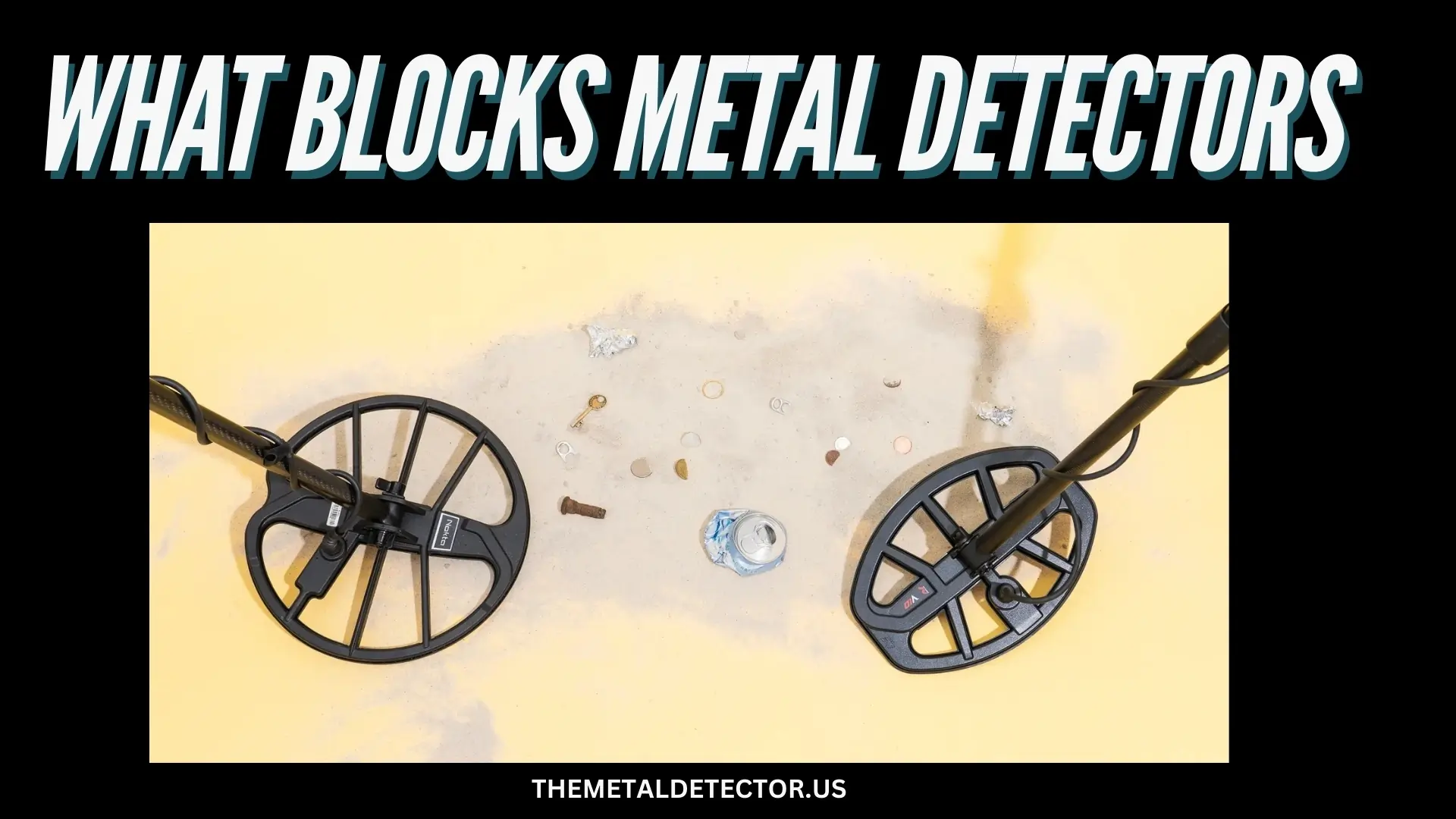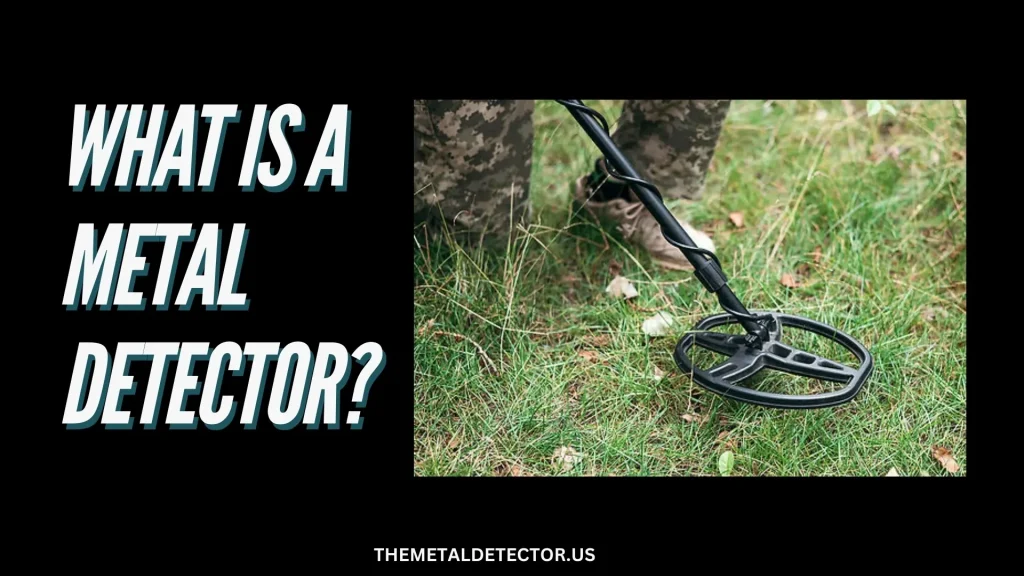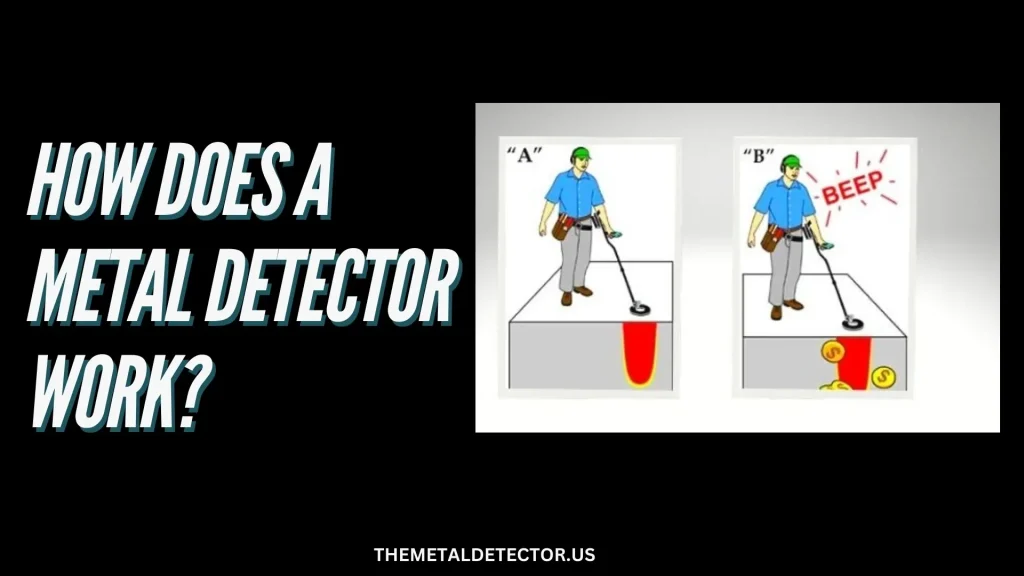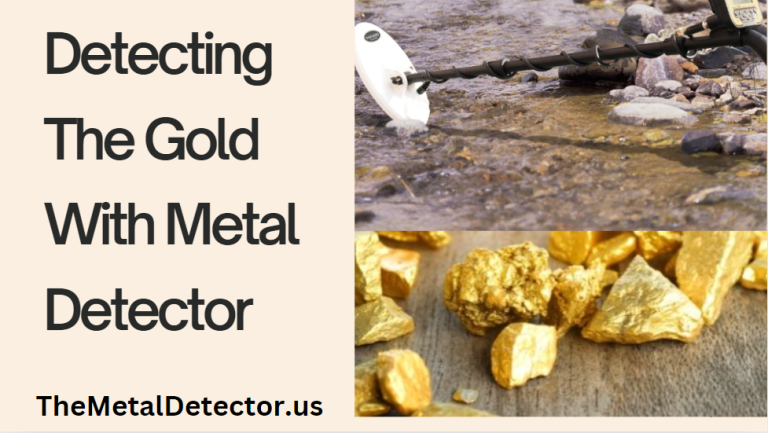What Blocks Metal Detectors From Detecting Them? 2025 Guide

Have you ever wondered why some objects pass undetected through a metal detector while others don’t? Metal detectors are powerful tools used for security, treasure hunting, metal detection, and industrial purposes, but even they have their limits. Some materials can interfere with their ability to detect metal objects, leaving you curious about what material can block metal detectors or what blocks metal detectors from going off.
In this article, I will give you information about what materials or conditions can block metal detectors and how they work. Whether you’re using a detector for fun or work, understanding these factors can help you get the best results. From natural materials like water and soil to man-made items, there’s a lot to uncover.
Let’s dive into how metal detectors operate, what blocks metal detectors from going off, and why some objects remain hidden despite your best efforts. This knowledge can improve your detecting skills or even satisfy your curiosity about how these fascinating devices work!
What is a Metal Detector?

A metal detector is an electronic device designed to locate metal objects buried underground, hidden in objects, or carried by individuals. These devices are widely used in security checks, archaeology, and by hobbyists searching for treasures. Metal detectors use electromagnetic fields to identify metallic objects.
You can read my review of Fisher Bug 2 if you are planning to buy it.
How Does a Metal Detector Work?

Metal detectors operate by emitting an electromagnetic field into the ground or surrounding area. When this field comes into contact with a metal object, it creates a disturbance that the detector’s coils pick up. The device then signals the user, usually with a beep or vibration, indicating the presence of metal.
Modern metal detectors often come with settings to distinguish between different types of metals, making it easier to focus on valuable items like gold or silver while ignoring common metals like iron.
You can read my useful insights on how you can detect metals under water with your metal detector.
What Metals Cannot Be Detected by Metal Detectors?
Metal detectors are useful devices, but they can’t detect all metals. Some metals are harder to find because they don’t conduct electricity well or aren’t magnetic. These metals create weak signals that are difficult for the detector to pick up.
For example, stainless steel is hard to detect because it doesn’t conduct electricity well and doesn’t rust easily. Rust can sometimes make metals easier to detect, but stainless steel resists it.
Titanium and some aluminium alloys are also tricky because their properties don’t respond well to a metal detector’s electromagnetic field. The depth, size, and position of the object also matter. Mineral-rich soils can interfere with the detector’s performance, making it even harder to find these metals. However, using the right detector and settings can help overcome these challenges.
If you are willing to buy a Fisher Gold Bug Pro and need guidance, then you can read my review on it.
What Metals Are Easy to Detect?
Metal detectors work best with metals that have good electrical conductivity or strong magnetic properties. These metals create strong signals that are easy for detectors to identify.
For example, iron is highly magnetic, so it gives a very strong signal. Similarly, copper, silver, and aluminium are excellent conductors of electricity, which makes them easy to detect.
What about lead? Yes, a metal detector can detect lead too!
Here are some metals that are easiest to detect:
- Gold
- Silver
- Copper
- Aluminum
- Iron
These metals produce strong signals, making them popular finds for anyone using a metal detector.
Metals That a Metal Detector Cannot Detect
Metal detectors are helpful tools, but they have limits. Some metals and materials can be tricky to detect because of their unique properties or the environment they are in. Let’s explore these in more detail.
Stainless Steel
Stainless steel is widely used because it resists rust and is very durable. However, it is one of the hardest metals for a metal detector to find. This is because stainless steel doesn’t conduct electricity well, and it’s less reactive to the electromagnetic fields produced by detectors. Unlike metals like iron, stainless steel doesn’t corrode, so there’s no rust to make it more detectable.
Older or buried stainless steel items are especially difficult to locate without advanced metal detectors designed specifically for this purpose.
Electrically Conductive Minerals
Some natural minerals, like wet salt or certain magnetic rocks, can create interference for metal detectors. These minerals disrupt the signals that detectors send and receive, making it hard to distinguish between the mineral and the actual metal. For example, if you are searching on a beach, the salty water in the sand can confuse the detector and lead to false signals. Special detectors designed for mineralized environments can help reduce this problem.
Soil Minerals
Soil that contains a lot of iron or salt can make detecting metals very difficult. This type of soil, often called “mineralized soil,” can trick the detector into thinking it has found metal. As a result, it becomes challenging to find real buried objects. This problem is common in areas with red or black soil, where the natural minerals are very high. Adjusting the detector’s settings or using a detector made for these conditions can help.
Iron Drain Pipes
Large metal objects, like iron drain pipes, can create strong signals that overshadow smaller items nearby. For instance, if you are looking for coins near a drain pipe, the detector might only pick up the pipe’s signal and ignore the coins. This happens because metal detectors prioritize the strongest signal. Using a detector with discrimination settings can help separate smaller targets from larger ones.
Titanium
Titanium is a lightweight and strong metal used in things like jewellery, medical implants, and aeroplanes. It’s hard to detect because it doesn’t conduct electricity well, and it isn’t magnetic. Most standard detectors struggle to pick up titanium unless they are specifically calibrated for it. Advanced detectors with higher sensitivity can sometimes find titanium, but it remains one of the more challenging metals to detect.
Ceramic Ferrite Magnets
Ceramic ferrite magnets are not metals, but they are worth mentioning. They are made from a mix of iron oxide and ceramic materials. These magnets are strong and resistant to losing their magnetism, but they don’t have the electrical or magnetic properties that most detectors are designed to find. As a result, objects containing ceramic ferrite magnets can often go undetected.
Depth of the Target
Metal detectors have a limit on how deep they can detect objects. The deeper an object is buried, the harder it is for the detector to find it. For example, most standard detectors can only detect objects up to 6-8 inches deep. Larger or stronger detectors can go deeper, but even they have limits. Factors like soil type, object size, and the detector’s power all affect how deep it can be detected.
Skill and Effort of the Detectorist
A metal detector is only as effective as the person using it. Beginners might miss signals or fail to adjust the settings properly for the area they are searching. For example, if the sensitivity is too low, the detector may not pick up smaller objects. Learning how to use the device effectively and practising regularly can make a big difference in finding hidden items.
Searcher Reburies the Item They Found
In areas that are popular for metal detecting, some items may have already been found and reburied by other detectorists. This can make it seem like the detector isn’t working, but in reality, the item is no longer in its original spot. This is why it’s important to search in less frequented areas or use advanced settings to find items others might have missed.
What are a Metal Detector’s Sensitivity and Discrimination Settings?
Sensitivity and discrimination are two important features that help you control and fine-tune a metal detector’s performance.
Sensitivity determines how strongly the detector reacts to metal objects. Increasing sensitivity allows the detector to find metals buried deeper or smaller objects that might not be found at lower settings. However, setting the sensitivity too high can cause false signals, especially in areas with mineral-rich soil or near sources of electromagnetic interference like power lines.
Discrimination helps the detector filter out unwanted metals. This is useful when you want to avoid junk items like pull-tabs, foil, or nails. By adjusting discrimination, the detector can focus on specific metals like silver, copper, or gold while ignoring less valuable materials. This setting is particularly helpful for treasure hunters who want to find valuable items and avoid wasting time on trash.
Properly adjusting these two settings ensures better accuracy, especially in areas with tough soil or a mix of unwanted materials.
Conclusion (What Blocks Metal Detectors)
Metal detectors are incredible tools that use electromagnetism to locate metals and ensure safety in industries like food production and manufacturing. However, they do have their limitations. Certain materials, like stainless steel, titanium, and ceramic ferrite magnets, are harder to detect due to their low conductivity or unique properties. Additionally, factors such as mineralized soil, large iron objects like drain pipes, and even deeply buried items can interfere with detection.
Understanding what blocks metal detectors can help improve your metal-detecting experience. Adjusting settings like sensitivity and discrimination, along with learning about the materials your detector struggles to identify, makes a big difference. Whether you’re a beginner or a seasoned treasure hunter, knowing what metal detectors can and cannot detect will help you make the most of this fascinating technology and uncover more treasures.






